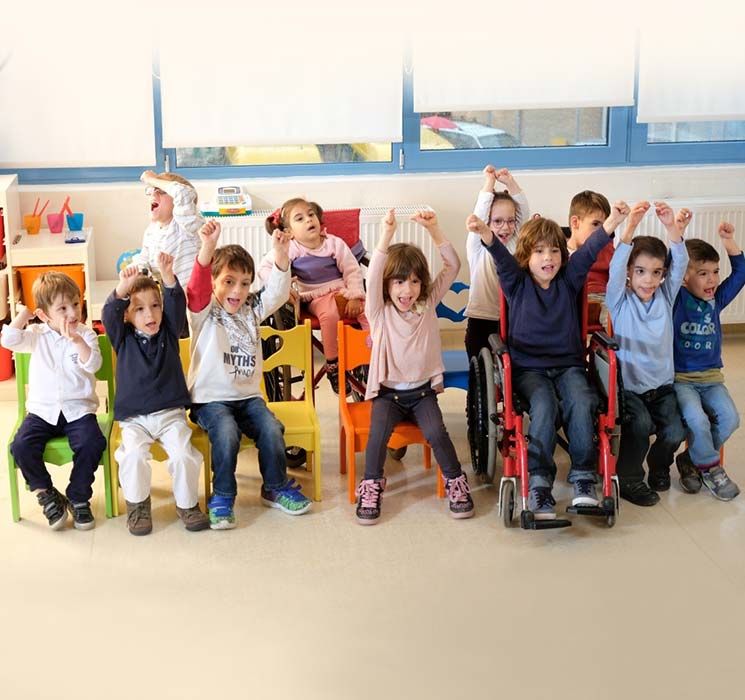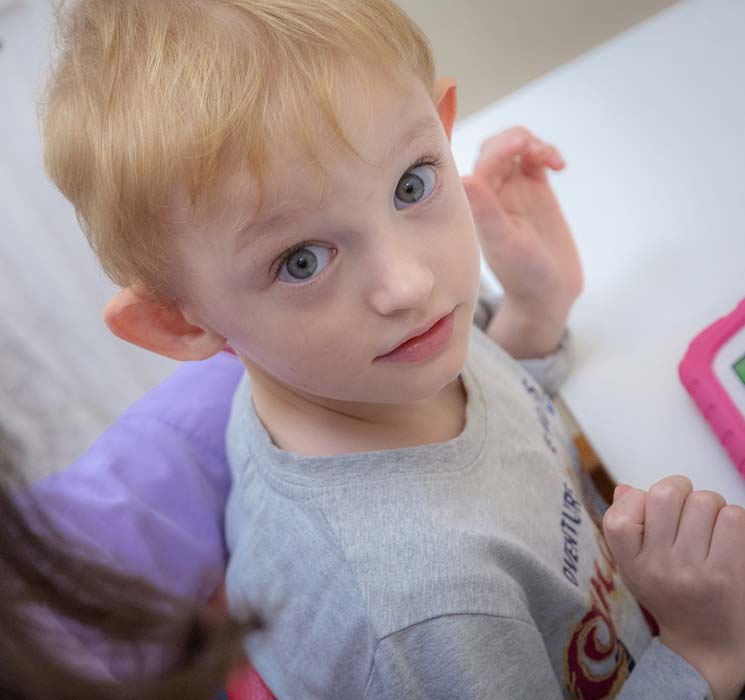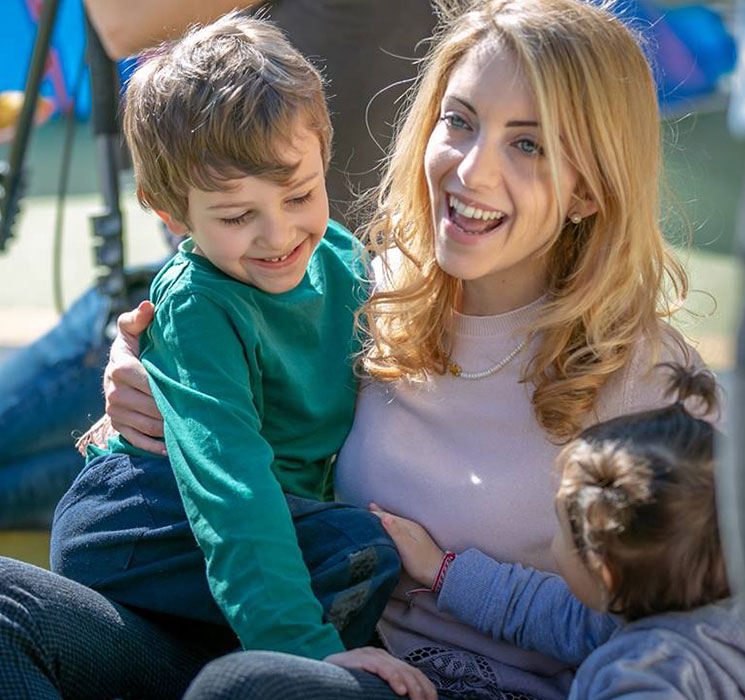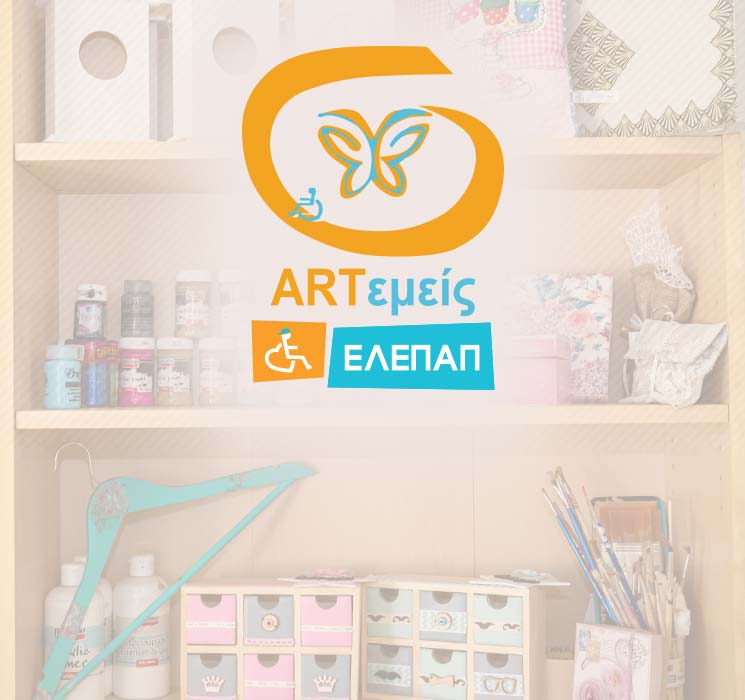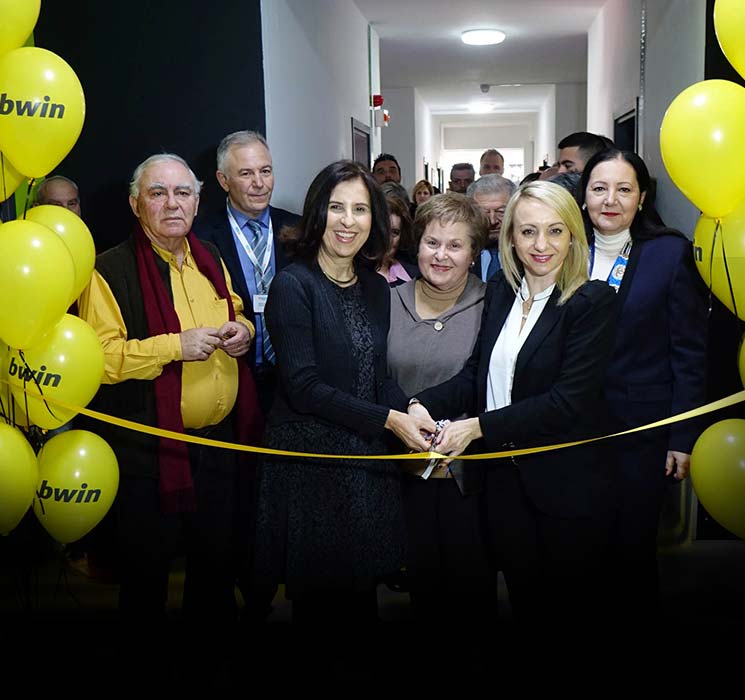Neuropsychology and Rehabilitation Unit for Brain Injuries
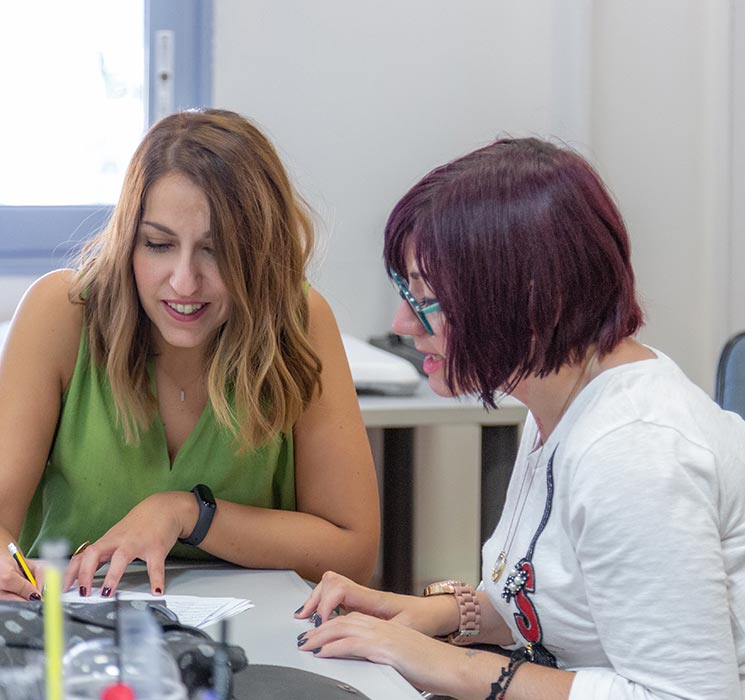
The ground-breaking Neuropsychology and Rehabilitation Unit for Brain Injuries has been operating at ELEPAP since 2008, in collaboration with the related Brain Injury Day Treatment Program of the ΝΥU Langone Health, Rusk Institute New York, USA.
The rehabilitation of a person who suffered a brain injury should not follow and for that matter should not be expected to follow the usual medical model. When a structural injury occurs in the brain, the injury is usually permanent and irreversible.
Holistic Neuropsychological Rehabilitation is a set of therapeutic interventions, which deal globally with the cognitive, functional and emotional impact of brain injury, which hinder a patient's re-integration.
The Unit accepts Adults with Traumatic Brain Injuries (TBI) and Brain Injuries (strokes, aneurysms, anoxic encephalopathies, intracranial tumours, encephalitis, arteriovenous malformations) who:
- are between 18 and 60 years old
- have suffered a brain injury at least 3 months before
- have a level of alertness and stamina to attend a group program of 5 hours a day.
- have basic verbal communication skills
- are self-sufficient
- are able to participate in team activities
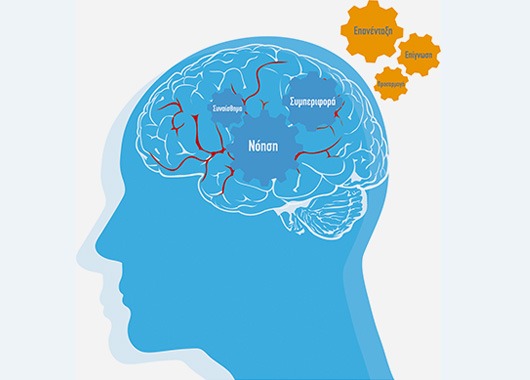
Services offered:
Neuropsychological Evaluation: The goal is to formulate an overall picture of a person’s profile as regards cognitive functions, behaviour, emotions, interactions and their impact on daily functioning, for the purpose of setting recommended rehabilitation targets.
The evaluation includes:
- An initial interview with the patient and their significant others.
- Administration of an extensive battery of neuropsychological tests lasting 2 to 3 days to assess cognitive functions (basic attention & concentration, verbal fluency and communication skills, visuospatial perception, memory, higher order executive functions), to investigate the existence of a possible psychopathological symptoms & for clinical observations.
- An analytical written report and interpretation of the results, conclusions and proposals.
- A session in which the results, conclusions and proposals are presented and discussed with the patient and their significant others.
The Neuropsychological Rehabilitation Day Treatment Program for small groups under the coordination of a team of neuropsychologists.
The program is organised into 2 cycles, each lasting 20 weeks, which begin in October and in February, and include 800 hours of therapeutic interventions. The number of cycles that each patient will require depends on their individual needs.
The daily program operates Monday to Thursday 10:00 to 14:30 with structured therapeutic interventions that include:
Personalised systematic stimulation of cognitive functions: attention and concentration, memory, perception, speed of processing information, verbal communication, higher order cognitive functions, such as programming, problem resolution, mental agility.
Intervention in a group setting with the purpose of:
- raising awareness regarding brain injuries and their consequences – self-awareness workshop.
- accepting difficulties
- practising compensatory strategies
- enhancing communication skills
- modulating behavioural dysfunctions, such as: apathy, anger, irritability, outbursts, obsessions, impulsiveness, suspicion, etc.
- developing social skills
- enhancing empathy
Individualised Therapeutic Intervention on a weekly basis that aims to:
- deal with neuropsychiatric issues & behaviours, including obsession, disinhibition, motivation and mood disorders, suspicion
- emotional empowerment and acceptance
- support in order to adapt to personal and family matters
- transfer compensatory techniques to participants' daily lives
- set acceptable new targets
Supporting “significant others” for the purpose of raising awareness, accepting ways of coping and gradually enhancing functionality and re-integration.
Program for gradual reintegration and adjustment to work, family and society.
The program follows the structure, psychometric tools, treatment methods and systematic cognitive stimulation exercises of the Brain Injury Day Treatment Program of ΝΥU Langone Health, Rusk Institute New York, USA, which have been translated and adapted to the Greek population.
Testimonials from Graduates
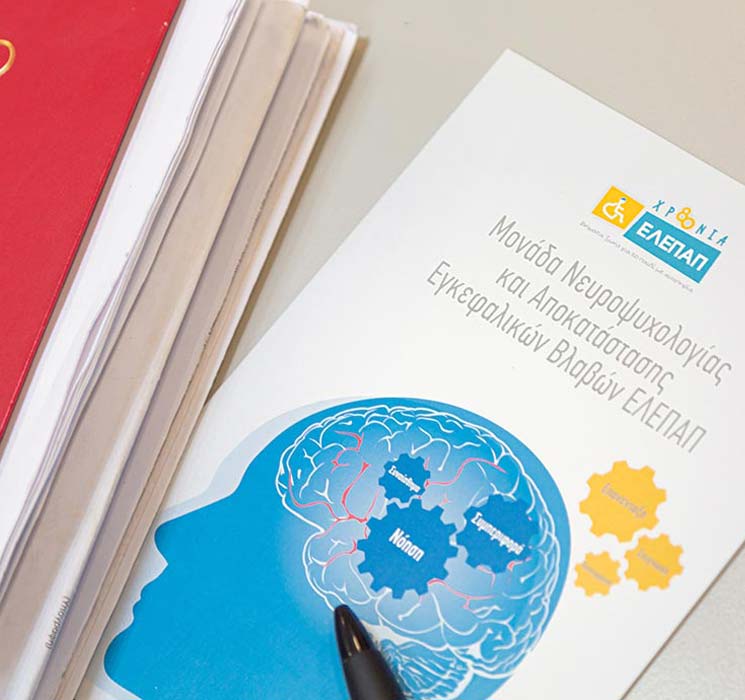
The personal testimonials of the participants illustrate their experiences, needs, thoughts and emotions and help us to see things from their perspective.
Before the road accident and the TBI (Traumatic Brain Injury), I was a successful professional with an extensive social circle. Unfortunately, all this disappeared very fast. I became short-tempered, abrupt, I couldn't understand what other people said and forgot very easily. I became isolated, I was left without friends and I experienced loneliness for an extended period of time. With the advice and instructions of the therapists and other members of our team, I became a new Michalis. My integration in society is happening at a slow pace, but I now feel confident enough to forge ahead!
I suffered a stroke when I was 36 years old. Ten years have since gone by. I have been at ELEPAP for the last 2 years. Brain injury does not make you foolish or crazy, as people seem to think. I may experience certain difficulties and require more time than other people or even perform tasks that others do automatically in a different manner, but I have complete mental clarity. Motor function is of course important, but compared to a well-functioning brain, it appears insignificant and minor.
I suffered a brain injury very early on in my life, at the young age of 14, when I was injured by a spear gun. For 10 years I strived for motor rehabilitation. I had other difficulties also, both cognitive and behavioural, which I did not understand and which nobody discussed with us. Greece is really backward when it comes to providing information about brain injury to those affected. After participating in the ELEPAP program I realised that a lot of hard work was required, but that things could change. We shouldn’t allow our problems to stew without even trying to find a solution. If I knew from the outset that there is a specialised facility, my life could have taken a completely different path.
I suffered a brain injury when I was 19 years old. I was a dance teacher and when I was dancing, I suffered a cardiac arrest, resulting in my brain remaining for quite a long time without oxygen. Since then I have experienced a lot of difficulties in my daily life. Rehabilitation after brain injury is always a long-term and difficult process, albeit a very important one. You begin by getting to grips with the difficulties you face and then you learn ways and strategies to overcome them.
Nobody knows what brain injury means until it happens to them or to a loved one, which I would not wish on anyone. Brain injury does not only affect cognition and motor function, but also emotions and behaviour and I learnt this the hard way, after the road accident. We have to be open to helping people, who have suffered a head injury, and not isolate them. Simply being there for us shows kindness and fills us with optimism, so that we can deal with any setback.
About 10 years ago I got dragged by a car, when I was attempting to cross a street at a traffic light and as a result suffered a TBI. After a brain injury many things change. Your world view changes. Others treat you differently. The time you need to take in and process information, as well as your reaction time change, which makes daily life and interpersonal relationships more difficult. In Greece, there is a greater focus on motor rather than cognitive rehabilitation, which for me is equally, if not more important. What “is” counts more than what “appears to be”. After recently attending the Neuropsychology and Rehabilitation Unit at ELEPAP, this is now clear to me. We have to be treated as equals and not as oddities, in order to be able to reintegrate smoothly into society once more.

